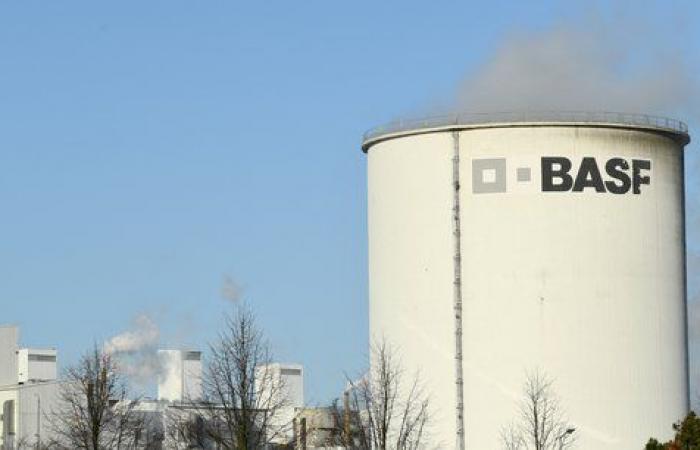It is Germany’s leading gas consumer with 47 terawatt hours consumed annually. The German chemical giant BASF is therefore bearing the brunt of the rise in energy prices. Its bill has indeed tripled in Europe over the first nine months of the year compared to 2021 and is nine times higher than in 2020, according to its CEO Martin Brudermüller.
In this context, “the question arises whether basic products in particular can still be produced competitively in Europe and Germany in the long term”, he explained in an interview with the economic daily Handelsblatt this Thursday, November 17. “We will announce our plans in the first quarter,” he continued, specifying that the reflections focused on “particularly energy-intensive products” such as ammonia, for which energy accounts for about 80% of manufacturing costs.
In the third quarter, Germany’s biggest chemical maker reported overall sales up 12% year-on-year to 21.9 billion euros. Its operating profit (EBIT) before exceptional items, which amounted to 1.35 billion euros, is on the other hand down 28% over one year. “The rise in raw material and energy prices could only be partially passed on to higher selling prices,” explains BASF. The group’s net profit, of 909 million euros, is also down nearly 30%, according to preliminary figures published in October.
Russian oil and gas shutdown ‘could plunge Germany into worst crisis since end of World War II’ (BASF)
Acting on production, the only lever for real savings
To cope with soaring energy costs, BASF already announced in October a savings plan of 1 billion euros for 2023 and 2024. This program targets fixed costs outside of production. Namely a “rationalization” activities in the areas of operations, services, research and headquarters. Job cuts are also planned.
However, this will not be enough and “Adaptations are also necessary in production”, warned Martin Brudermüller on Thursday. BASF has been able to reduce its consumption at the margin by improving energy efficiency, and replacing gas with petroleum-based energy sources. “But the bulk of the savings unfortunately comes from production shutdowns.”
If gas prices, which are currently falling, will stabilize, “we believe that in the long term, they will be around three times higher in Europe than in the United States, if only because of the higher costs of LNG (liquefied natural gas, editor’s note)” which replaces imports from Russia, says the CEO.
Martin Brudermüller had already caused a stir at the end of October by announcing that the group would reduce “permanently” wing in Europe while the group wants to strengthen in China where it is making significant investments. “In the third quarter, the European chemicals market fell by 6%”, adds the CEO who sees in this the acceleration of a loss of competitiveness that has been going on for a decade. It also implicates “over-regulation” of the European Union Green Deal, a roadmap for EU countries to achieve climate neutrality by 2050.
Alsace welcomes 300 million euros of investments from the chemist BASF
The entire German chemical industry affected
More generally, the entire German chemical industry is expected to experience a heavy drop in production in 2022 due to the energy crisis and the war in Ukraine, according to the VCI sector federation. This sector, the figurehead of German industry, is also one of the country’s main gas consumers.
The organization estimates the drop -5.5% for the entire sector over one year, in its quarterly activity report published in September. Without the pharmaceutical industry, production would fall even further, by 8.5%.
German chemicals with giants such as Bayer, BASF and a host of SMEs is the country’s third largest economic sector behind machine tools and automobiles, with more than 473,000 employees at the end of June.
Gas: Germany announces that it has completely filled its tanks for the winter
(With AFP)
Tags: Energy prices push German chemical giant BASF relocate


